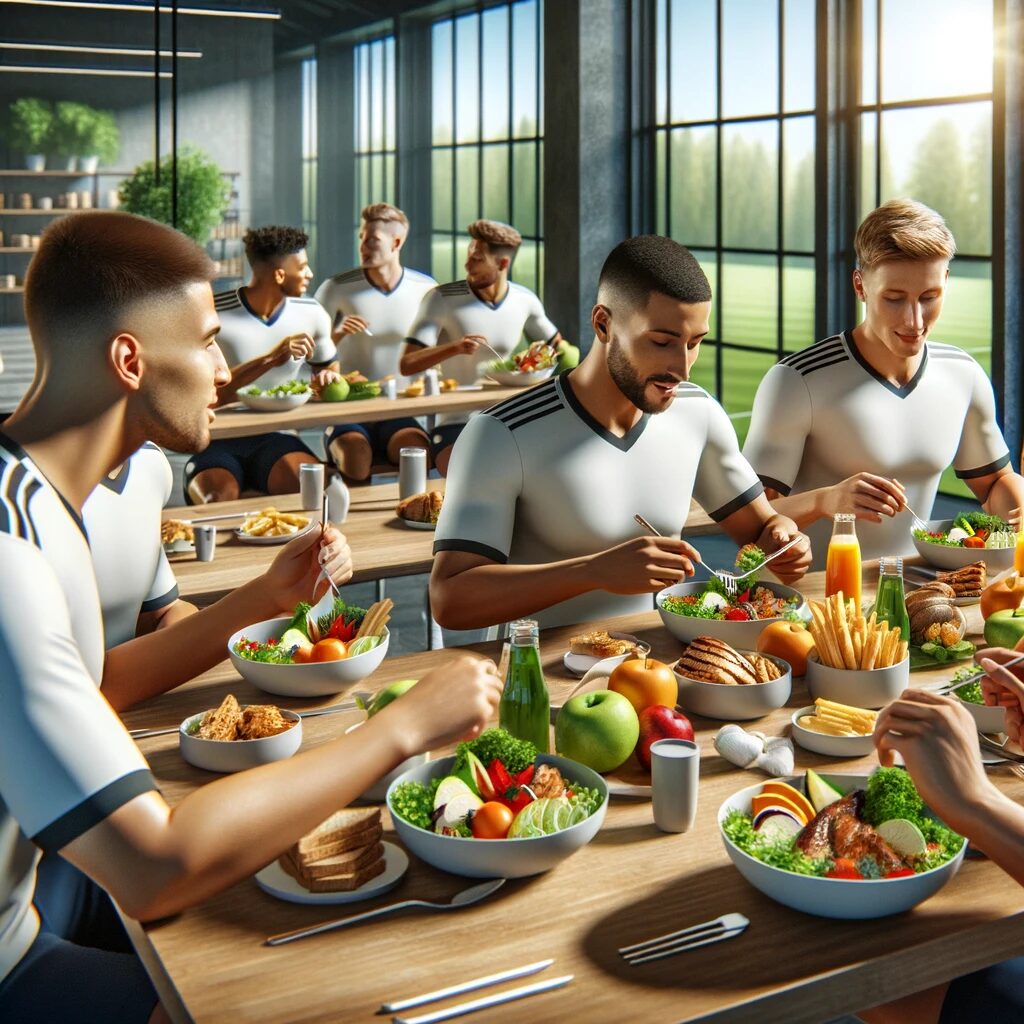The Proper Nutrition for Football Players
How Should I Eat Right as a Football Player?
Proper nutrition is crucial for football players as it provides the necessary nutrients for the body both in daily life and on the football field.
A good sports nutrition plan should include 2-3 liters of fluid and specific nutrients. During a 90-minute football game, a player typically burns around 900 calories, making a balanced diet before the game essential.
Key components of this diet include:
– Carbohydrates (particularly whole grains)
– Proteins
– Healthy fats (Omega-3 fatty acids)
– Vitamins
– Minerals
– Phytonutrients
– Unsaturated fatty acids
Each of these components plays a vital role in ensuring that a football player’s body functions optimally, both during training and on match days, and aids in effective recovery.
Nutrition on Rest Days
Optimal nutrition on rest days involves a tailored basic diet. Athletes should consume less food and fewer calories on these days. It is advisable to ensure sufficient vitamin intake, with fruits and vegetables being the best sources.
Consume complex carbohydrates, high-quality fats, and proteins at meals. It is recommended to avoid processed foods, such as ready-made products, as much as possible.
Footballer’s Nutrition the Day Before a Match
On the day before a game, training intensity is usually not as high. However, it’s still important to replenish carbohydrate stores. When the muscles are well-stocked, they can provide sufficient energy for 90 minutes. It’s also crucial to hydrate well the day before.
Starting football matches with depleted stores and insufficient hydration is not advisable. The body won’t perform as well as it could, and energy levels may drop more quickly.
What Footballers Eat on Match Day
Before the Game
The last substantial meal on match day should be consumed 2 to 3 hours before the activity. This meal should include carbohydrates and be well-tolerated by the athlete. High fiber intake should be avoided.
Large amounts of fluids should also be drunk 2 to 3 hours before the game starts. Continue to consume small amounts of fluid up until 30 minutes before the game begins.
Some athletes find it challenging to eat normal food on match day. Special meals designed for athletes can be helpful. Additionally, carbohydrate drinks are available, which might be easier to consume than solid food.
During the Game
There are opportunities to drink during short breaks in play. Hydration should also occur during halftime. In the 15-minute break, it is advisable to consume carbohydrates.
This can be done through special bars or gels. It is important to test these during training to ensure they are well-tolerated.
uhlsport water bottles are available HERE to be perfectly equipped during the game.
After the Game
Post-game meals should again contain carbohydrates and protein. It’s also crucial to quickly replenish any fluid loss. The faster you consume food and drink, the better the recovery.
The Day After the Game, Recovery
Especially important on rest days is the abundant intake of proteins to aid muscle recovery. Fruits and vegetables, rich in vitamins, should be included in every meal.
Unsaturated fatty acids should also be part of the diet. They help the cardiovascular system recover and maintain low inflammation levels in the body.
Takeaway
Tailoring nutrition to match training and game days, along with continuous hydration, is crucial for the performance and well-being of football players. It’s advisable to seek advice from a nutrition expert to consider the specific needs of one’s own body and training plan.



